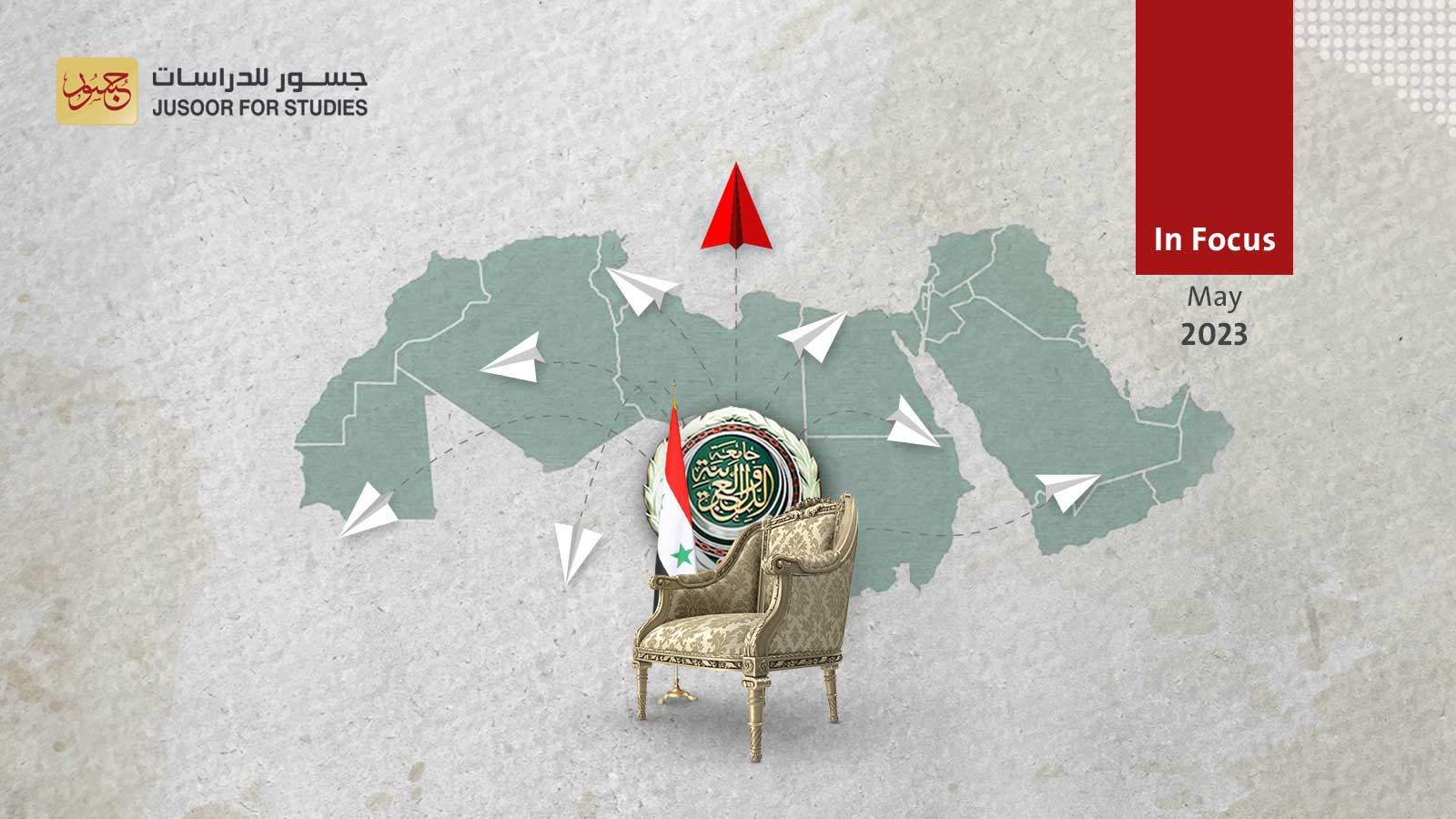Differences between the Arab League's decisions regarding the Syrian regime
The Arab League Council, under the presidency of Egypt, adopted Resolution 8914 during its extraordinary ministerial—level session on May 7, 2023. The resolution stated the resumption of participation by the Syrian regime's delegations in the League's meetings. Subsequently, during its 32nd summit held in Jeddah on the same month, the AL Council issued a modified version of the resolution.
There are clear differences between the two versions of the resolution in terms of deletions and additions; as the paragraph that stated the readiness of the Syrian regime to cooperate with Arab countries in implementing the outcomes of consultative meetings was cancelled. The necessity of implementing the commitments and agreements reached at the Amman meeting was also removed. Additionally, any reference to advancing the comprehensive political settlement process was excluded. On the other hand, the work of the Constitutional Committee was reduced to the context of achieving national reconciliation only, and its mandate, as stipulated in the Security Council, to amend the current constitution or draft a new constitution, was dropped.
Moreover, the summit statement omitted the reference to the regime's readiness to cooperate with Arab countries in implementing the outcomes of the statements issued by the consultative meetings in Jeddah and Amman. It also excluded any mention of the implementation of commitments and agreements reached, including the adoption of necessary mechanisms to activate the Arab role.
On the other hand, the summit-level resolution included new additions that were not present in the ministerial-level resolution. These additions include phrases such as rejecting all foreign interventions and any unauthorized military presence in Syria. It also emphasized the need to provide a response plan for the refugee crisis in order to facilitate a safe and dignified return for them. However, this statement did not specifically mention voluntary return.
It is noteworthy that both the new additions and the deleted phrases align perfectly with the discourse of the Syrian regime and Iran, particularly regarding the issue of the withdrawal of unauthorized foreign forces, thus excluding the presence of Iranian and Russian military forces. This reflects a disregard for the threat posed by militias, which many Arab countries, including Jordan, consider as a threat to their national security.
According to the summit-level resolution of the Arab League, the Syrian regime is no longer obligated to cooperate with Arab countries or implement any action plan that would contribute to the development of an Arab role in finding a solution. This goes against the demands put forth in the statements of the consultative meetings in Amman and Jeddah, which called for such cooperation and the establishment of an active Arab role in the resolution process.
By doing so, the Arab League has responded to the vision of the Syrian regime's allies, particularly Iran, regarding the expected nature of the Arab role in Syria. This response could be a result of regional pressures or negotiations in the context of the agreement between Tehran and Riyadh. However, it grants the regime gains without ensuring any steps that would serve the interests and concerns of Arab countries, nor even the political solution in the country.
Finally, the step-by-step approach, in line with UN Security Council Resolution 2254 and focused on countering drug trafficking and facilitating refugee returns, may be the most significant common ground between the two Arab League resolutions. However, the regime clearly stipulates that the improvement of economic conditions and the fight against terrorism must be addressed first. Additionally, it considers itself committed to Resolution 2254 through the presidential elections held in 2021. Furthermore, the regime aims to promote the Arab role in reviving the 2012 constitution by reducing the work of the Constitutional Committee to the context of achieving national reconciliation.








